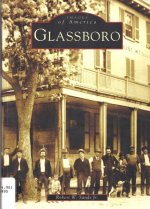Old photos and info
I just Googled Old Photos in Winsted, CT and got many good bits of info. Here is an example:
III. Old Roads and Stage Coaches
There were several rival stage companies that operated between New Hartford and Riverton. Each stage driver stopped at his favorite inn, receiving certain favors and gratuities in return. There were five village taverns. Four of these were close together, as follows: Launcelot Phelps’ Tavern.
Peletiah Ransom Tavern.
Jesse Ives Tavern (now Riverton Inn).
Tiffany Tavern (now Cook’s Place).
The fifth tavern was at a little distance and is the building now occupied by the families of Leon Coe and Reuben Miller, and was called Pinney Tavern.
The oldest of the stage roads is known as the County road, and it crossed Farmington River at three fords between Pleasant Valley and Riverton. Two of these fords were at the north and south end of Lighthouse Flat. The Riverton iron bridge, opposite the Inn, was built in 1790 and often renewed. It was the only bridge over the Farmington north of New Hartford this side of the Massachusetts line. Two routes were followed by stage-coaches going north from Riverton. One followed the West branch of the Farmington as far as Riverton forks, thence past the barn near the present residence of Miss Mary Buttles up the Still River to Moore’s Bridge, thence to Robertsville and points north. The other road was the back road to Colebrook River past Hog’s Back and Dean Place. It was the same as the present road except that Hog’s ‘Back hill was avoided, first by a left-hand ford above the present swimming pool, a mile above town, and by a right-hand ford near the old Dean Place.
We have the name of only one —- and nearly the last — of the stage drivers. ‘He lived in Riverton and his name was Wallace H. Dowd. He was nearly killed when ‘his stage broke through the old Moore Bridge in 1870. Fayette Alford and Dr. John Hitchcock (son of Lambert) were also injured in the same accident.




